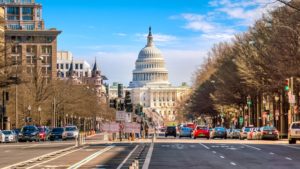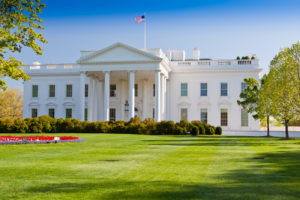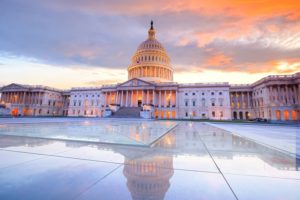
The CDC prioritizes certain groups to receive COVID-19 vaccines, a federal court upholds FDA rule applying tobacco regulations to vape products, and more…
IN THE NEWS
- The Centers for Disease Control and Prevention (CDC) Advisory Committee on Immunization Practices recommended that COVID-19 vaccines be administered to health care workers and residents of long-term care facilities first. The committee concluded that vaccinating these groups first would most effectively reduce death and severe illness from COVID-19. One committee member reportedly raised concerns in previous meetings about the recommendations classifying nursing home residents as top priority for receiving the COVID-19 vaccine, as they are “not a population that has been studied in the vaccine trials,” but the majority of the committee disagreed and voted to prioritize nursing home residents. CDC Director Robert Redfield approved the committee’s recommendations, providing guidance before the U.S. Food and Drug Administration (FDA) authorizes emergency use of a vaccine.
- A federal appellate court upheld an FDA rule that applies tobacco regulations to vape products. Vape products manufacturer Moose Jooce challenged FDA’s rule as violating the Appointments Clause of the U.S. Constitution because it was issued by FDA Associate Commissioner for Policy Leslie Kux, who was not confirmed by the U.S. Senate. The court found that the rule did not violate the Constitution because it was ratified by then-FDA Commissioner Scott Gottlieb. The court also upheld the lower court’s determination that several new studies on the health effects of vaping would likely change FDA’s policy.
- President-Elect Joe Biden announced former chair of the Board of Governors of the Federal Reserve System, Janet Yellen, as his nominee for the Secretary of the U.S. Department of the Treasury. Yellen would be the first woman to serve as the Secretary of Treasury. Biden stated that Yellen will be part of a team comprising “respected and tested groundbreaking public servants who will … address the structural inequities in our economy.” The American Bankers Association welcomed Biden’s “historic decision” to nominate Yellen, stating that she “understands the critical role banks play in the economy.” Several U.S. Senate Republicans also stated that Yellen was qualified for the position.
- The U.S. Environmental Protection Agency (EPA) issued a final rule determining that a law designed to encourage financial responsibility in specific environmentally hazardous industries does not apply to the electric power generation, transmission, and distribution industries. The Comprehensive Environmental Response, Compensation, and Liability Act requires EPA to identify risky industry sectors and determine whether regulations are necessary to ensure that companies have sufficient funds to cover the risk of possible environmental damage. EPA identified these three industries as high risk in 2010 but had not made a determination as to whether rules were necessary until now. EPA justified its determination by stating that “existing environmental regulations and modern industry practices are sufficient to mitigate any risks inherent in these industries.”
- The Federal Communications Commission (FCC) Chair Ajit Pai announced that he will leave his position on January 20, following an FCC tradition of chairs stepping down when a new President takes office. Pai is best known for repealing Obama Administration net neutrality rules, which allowed enforcement actions against internet service providers who discriminated against particular sources of internet communications. Pai’s decision to repeal the rules, however, is likely to be overturned once there is a Democratic majority at the FCC. Pai stated that it had “been the honor of a lifetime” to serve in the role and help close “the digital divide.”
- Canadian Minister of Health Patricia Hajdu issued an order limiting the distribution of drugs outside of Canada to prevent drug shortages. Hajdi said that the order “will help protect Canadians’ access to the medication they rely on.” The order comes after the U.S. Department of Health and Human Services (HHS) issued a final rule allowing importation of certain prescription drugs from Canada. President Donald J. Trump announced that the HHS rule would help reduce drug prices for Americans. The Canadian government, however, emphasized that the HHS rule would not be an effective approach to reduce drug prices, given the smaller size of the Canadian pharmaceutical industry relative to the U.S. prescription drug market.
- The Bureau of Land Management announced that it will auction off leases to extract oil and gas from Alaska’s Arctic National Wildlife Refuge on January 6, 2021. The announcement followed the agency’s request last week for the public to nominate specific tracts of land to be included in the auction. Conservation activists, tribal groups, and 15 states have already filed lawsuits seeking to invalidate the sale. Michael Brune, executive director of the Sierra Club, noted that the incoming Biden Administration might still be able to prevent drilling in Alaska but that doing so will be costlier and more difficult if the Bureau of Land Management has already issued the leases.
- New York City Mayor Bill de Blasio announced that schools will begin a phased reopening. School buildings will reopen for pre-kindergarten through fifth grade instruction beginning December 7, and students with disabilities can resume in-person instruction on December 10. Students who indicated their preference for in-person learning can only return to the building if their guardian signs a consent form for COVID-19 testing. The New York City Department of Education previously required that schools revert to remote learning if the city had a 3 percent COVID-19 testing positivity rate, but will now determine closures on an individual school basis. New York Governor Andrew Cuomo reportedly praised the decision to transition to in-person learning by saying that early primary school education “should be kept open whenever it is possible to keep them open.”
- The U.S. Fish and Wildlife Service issued a final environmental impact assessment for its proposed rule that would reinterpret the Migratory Bird Treaty Act of 1918 to prohibit only the intentional killing of birds. The impact assessment found that the policy change will likely lead to “increased bird mortality” but implied that this consequence would be justified by the legal certainty that the rule will provide to the electricity distribution and fossil fuel industries. David Yarnold, president of the National Audubon Society, said that the policy would leave no accountability for the deaths of millions of birds per year caused by unprotected power lines and oil waste pits. The agency tried to adopt a similar policy in 2017 through an informal opinion memo, but that policy was vacated by United States District Judge Valerie Caproni in an order in which she wrote that “it is not only a sin to kill a mockingbird, it is also a crime.”
- The U.S. Environmental Protection Agency (EPA) missed the statutory deadline to publish a final rule for its policy on biofuels, which are considered an environmentally friendly alternative to traditional fuels. Renewable Fuels Association president and CEO, Geoff Cooper, reportedly stated that it was not surprising that EPA failed to meet its deadline given that the agency did not propose a rule. As a result, the incoming Biden Administration is expected to determine the amount of biofuels that oil refiners must include in their fuels. Cooper reportedly anticipated that the next EPA administrator “will stop doing secret favors for oil refiners.”
WHAT WE’RE READING THIS WEEK
- The U.S. Government Accountability Office (GAO) issued a report on the implementation of the Coronavirus Aid, Relief, and Economic Security Act and other pandemic relief measures. GAO found that the U.S. Department of Labor has been inaccurately reporting the number of individuals claiming unemployment benefits during the pandemic because of backlogs and other data issues. GAO recommended that the Labor Department clarify the reported numbers and pursue better data by working more closely with state officials to reflect more accurately the unemployment landscape.
- In a recent working paper, Tetyana Balyuk, professor at Emory University’s Goizueta Business School, Nagpurnanand R. Prabhala, professor at Johns Hopkins’s Carey Business School, and Manju Puri, professor at the Duke Fuqua School of Business, examined the effects of the Paycheck Protection Program on small businesses. Although the program offered an attractive source of funding for small businesses, Balyuk, Prabhala, and Puri found that some small businesses were reluctant to take funds from the program and even returned the loans without using them. Balyuk, Prabhala, and Puri suggest that these firms were deterred by the indirect cost of being subject to an audit as part of their participation in the program.
- In a recent paper, Kathryn Kovacs, professor at Rutgers Law School, argued that the President should be required to adhere to specific elements of the Administrative Procedure Act (APA) such as public notice and comment when acting with purely statutory authority. Kovacs critiqued the U.S. Supreme Court’s 1992 decision in Franklin v. Massachusetts, which held that the President was not subject to APA requirements, for ignoring parts of the statute and legislative history indicating that the U.S. Congress intended that some presidential actions be covered by the APA. Under this theory, Kovacs speculated that President Trump’s order barring immigration from certain Muslim-majority countries would have violated the APA.
FLASHBACK FRIDAY
- In an essay in The Regulatory Review, Thomas Cockriel examined state and federal policymakers’ deregulatory efforts in the wake of the Great Recession. Cockriel discussed that supporters of deregulation highlighted how “excessive regulations” hindered “the economic recovery by increasing business costs, raising fuel prices, and moving jobs overseas.” Cockriel notes, however, that the Office of Management and Budget found that the economic benefits of regulation typically exceeded its costs.



